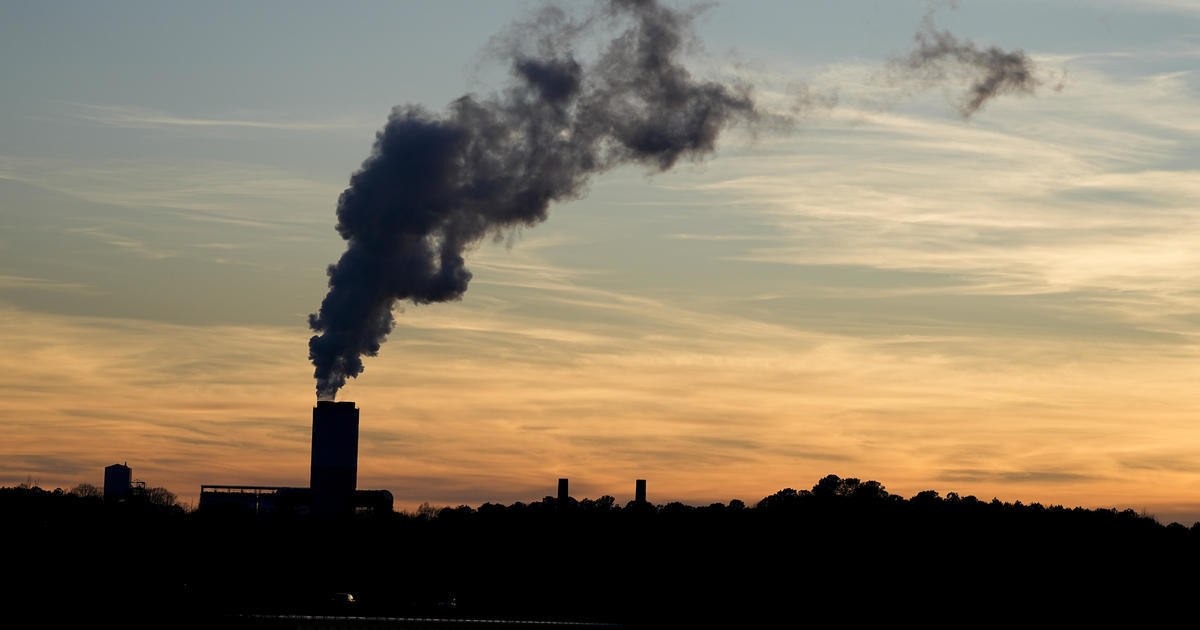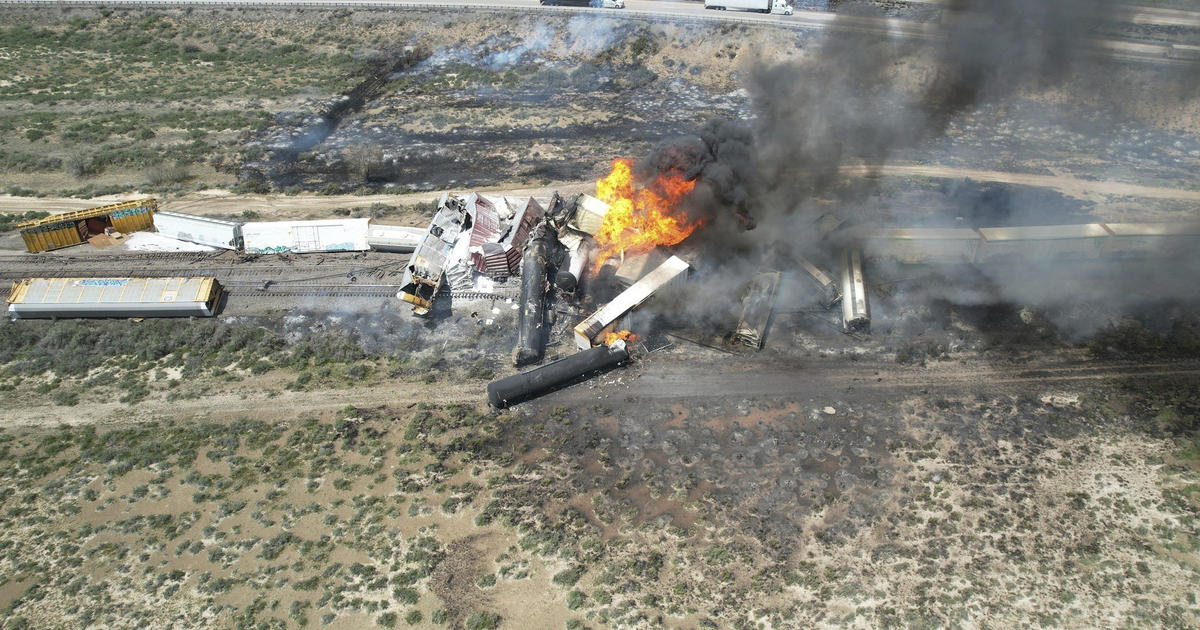EPA to require Norfolk Southern to test for dioxins at site of East Palestine train derailment
In response to health and safety concerns from residents of East Palestine, Ohio, the Environmental Protection Agency announced Thursday it will requir Norfolk Southern to test the site of the fiery train derailment for dioxins, the agency announced.
The EPA said it will order an immediate cleanup of the area if dioxins that pose "unacceptable risk to human health and the environment," are found in the area, the agency said in a news release, adding that it would oversee any possible cleanup.
Norfolk Southern will also be required to conduct a background study that compares dioxin levels around East Palestine, to dioxin levels in other areas not impacted by the Feb. 3 derailment, the EPA said.
EPA Administrator Michael Regan said he came to his decision after speaking directly with East Palestine residents.
"Over the last few weeks, I've sat with East Palestine residents and community leaders in their homes, businesses, churches, and schools," Regan said in a statement. "I've heard their fears and concerns directly, and I've pledged that these experiences would inform EPA's ongoing response efforts."
The EPA said that as of Feb. 28, the agency has collected air, soil and water samples from the potentially impacted area to test for "indicator chemicals" such as chlorobenzenes and chlorophenols that would suggest the potential for the release of dioxins attributed to the derailment.
No one was injured when 38 Norfolk Southern cars derailed Feb. 3 in a fiery, mangled mess on the outskirts of town, but as fears grew about a potential explosion due to hazardous chemicals in 10 of the derailed cars, officials evacuated the area. They later opted to release and burn toxic vinyl chloride from the tanker cars, sending flames and black smoke billowing into the sky again.
Federal and state officials have repeatedly alleged that it is safe for evacuated residents to return to the area, and that air testing in the town and inside hundreds of homes has not detected any concerning levels of contaminants. The state said the local municipal drinking water system is safe, and bottled water is available for those with private wells. Despite those assurances, many residents have expressed a sense of mistrust, or have lingering questions about what they have been exposed to and how it will impact the future of their families and communities.



